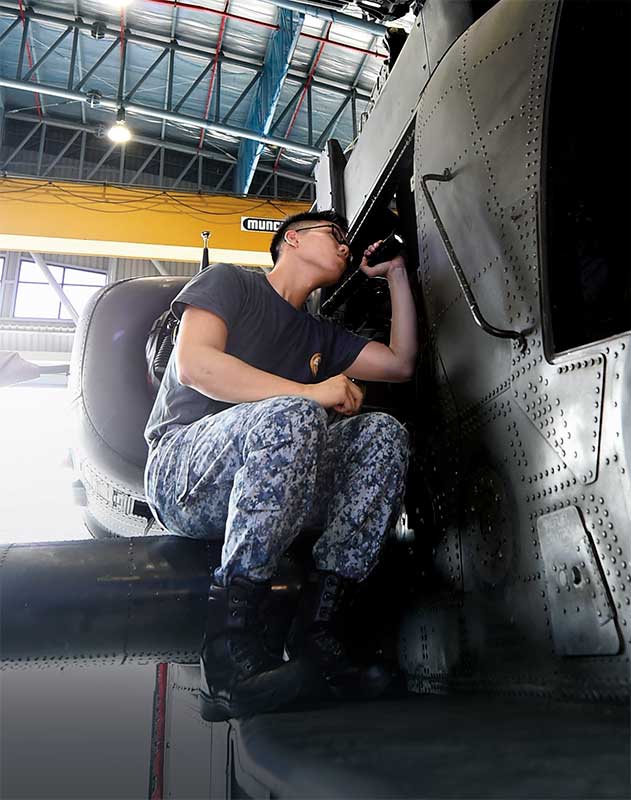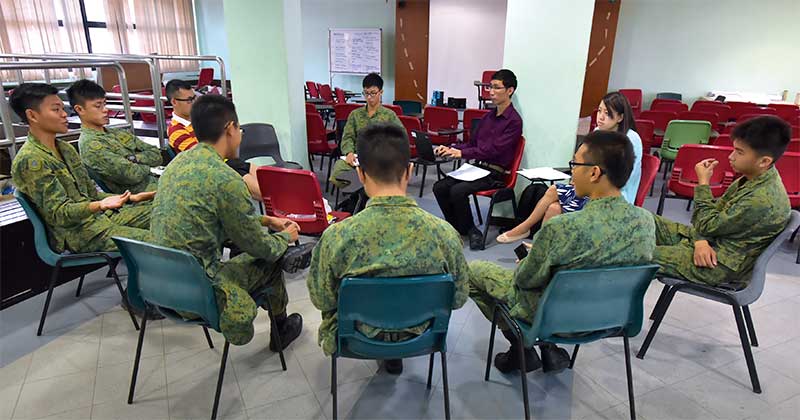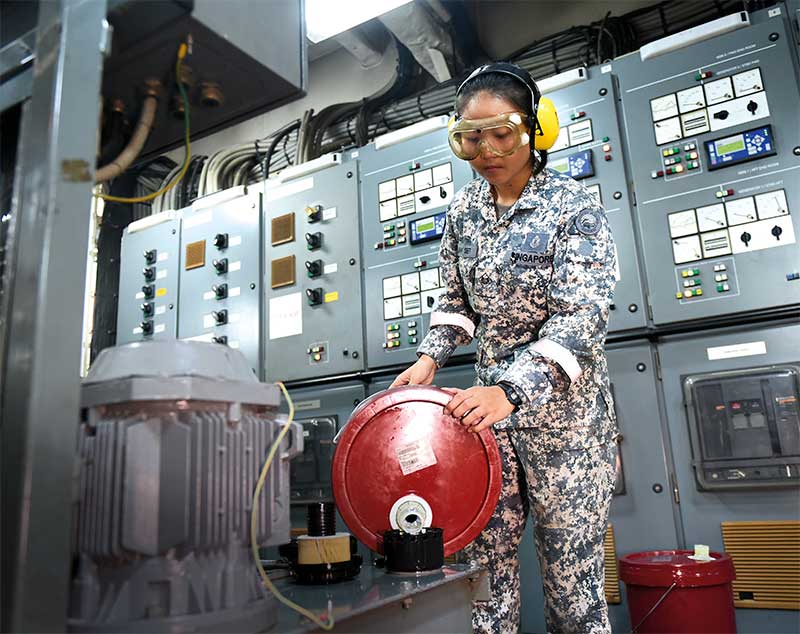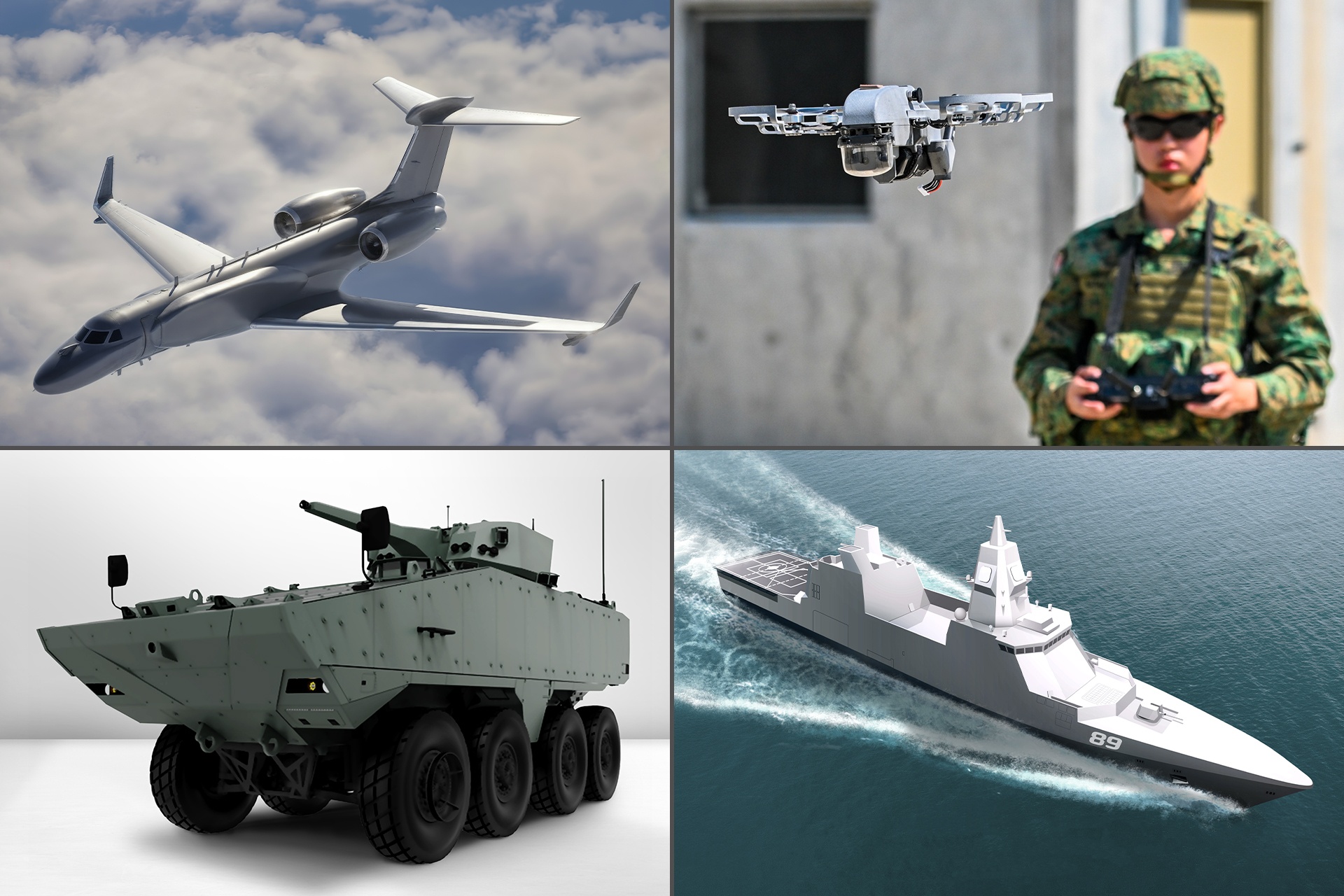OPS & TRAINING
SAFE AND SOUND
01 Jun 2017
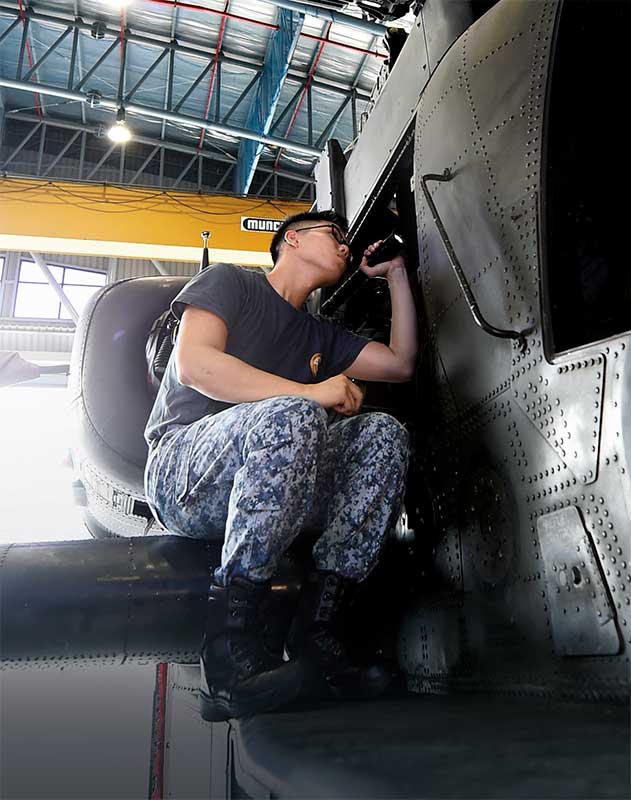
Safe and sound
After a three-year study on the safety systems of the Singapore Armed Forces (SAF), the External Review Panel on SAF Safety (ERPSS) liked what they found a sound safety system with some room for improvement.
What is the ERPSS?
It is a 10-member panel, led by Singapore Press Holdings Chief Executive Officer Alan Chan, that spent three years visiting units in the SAF to observe safety practices and recommend improvements.
What did they find?
Some of the panel's key observations included: strong emphasis on safety by SAF commanders; substantial investments in safety over the years; and robust safety management systems.
The ERPSS made several recommendations to deepen certain practices within the SAF to improve safety. Here s a sampling of what the SAF has been working on, following the ERPSS report.
Sharing best practices
What if there was a way for units to quickly get a sense of safety concerns on the ground after large training exercises? This is where the Army Safety Inspectorate (ASI) psychologists come in, in collaboration with units.
"Typically, we conduct informal discussions with the soldiers to find out specific details like what went well and also try to uncover systemic issues in the units (if any)," explained Ms Rachel Tan, an ASI Psychologist.
The psychologists are also called in whenever the Army wants to understand the dynamics behind certain safety errors in the units. For example, they were asked to examine the behaviour and perceptions of servicemen involved in cases of negligent discharge of weapons at firing ranges a few years ago.
"After conducting discussions with the soldiers involved, we realised that there was an over-reliance on the commanders to rectify weapon faults," said Ms Han Xiuwen, a former ASI psychologist who has since moved to the Defence Psychology Department.
To reduce the risk of negligent weapon discharges, the psychologists recommended measures such as reminding commanders to let their trainees take greater ownership of their weapons, and to refresh their Immediate Action drills more.
Apart from these, Army psychologists also conduct regular safety surveys across the Army. The findings are then shared with the units.
Strengthening safety culture
While military operations will always carry some degree of risk, potential accidents can be avoided through vigilance and education. This approach is widely practised on board Landing Ship Tank RSS Persistence, which has had no accidents for the past four years.
Commanding Officer Lieutenant Colonel Gary Ow said: We ve always tried to build a strong culture of safety and awareness of risks at all levels, from the most junior sailor right up to myself. We must know the risks and hazards and (actively) practise the mitigating measures in place.
For the crew, that means daily reminders of measures such as keeping a three-point contact when accessing any staircase or ladder within the warship, cleaning up oil spills and wearing appropriate hearing protection.
Before each day of work, the crew is also briefed on potential hazards. There are also weekly sharing sessions where any crew member is welcome to talk about safety-related experiences or even just to point out certain areas of improvement.
As a Marine Systems Operator, Military Expert (ME) 1 Jenny Seet is usually found in the ship s engine room, where noise levels can easily exceed 100 decibels almost 20 percent above safe levels.
That is where personal protection equipment such as ear defenders (which are like heavy-duty sound-deadening headphones) come in. They might be hot and sometimes uncomfortable, but they also mean that all of us can go home to our families safe and sound.
Promote open reporting
Talk about safety to personnel from the Air Engineering and Logistics Organisation, and the conversations take on a more serious tone.
"The work we do involves many moving parts and directly impacts the readiness of the Air Force, so we take safety very seriously," said ME5 Mark Koh, a staff officer from the Quality Assurance Branch in the Air Engineering and Logistics Department.
For example, at 806 Squadron which handles the servicing and maintenance of helicopters, Air Force Engineers (AFEs) are encouraged to voice out any safety concerns. As part of a Behavioural Based Safety programme that promotes a culture of open reporting and cross-checking, the unit also encourages their AFEs to immediately intervene and remind their co-workers to be careful whenever they spot a hazard or potentially unsafe act.
"I'm grateful whenever my colleagues point out that there is a safer way to carry out a particular task. It creates a strong sense of the importance of safety within the unit," said ME1 Lee Huan Wei, an AFE who works in the Attack Helicopter Maintenance Section.
To further boost open reporting channels, 806 SQN is currently exploring the use of mobile apps for greater ease of use.
ALSO READ IN OPS & TRAINING
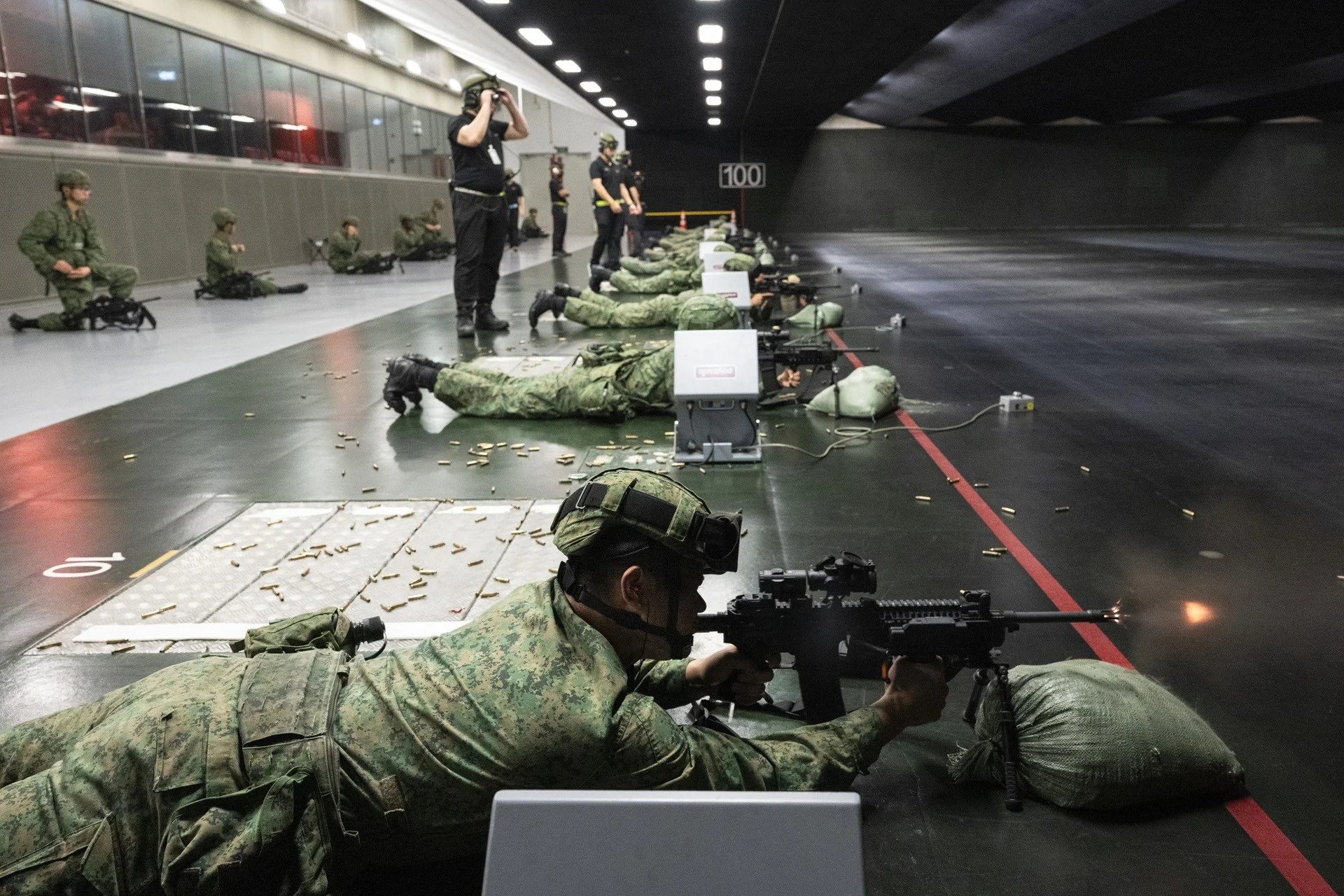
New firing range complex at Bedok Camp; Medical Classification System to be redesigned
27 Feb 2026
To train soldiers for a more complex environment, the SAF will build a new Multi-Mission Range Complex, as well as introduce opportunities for national servicemen to take on new roles, and more ways to volunteer.
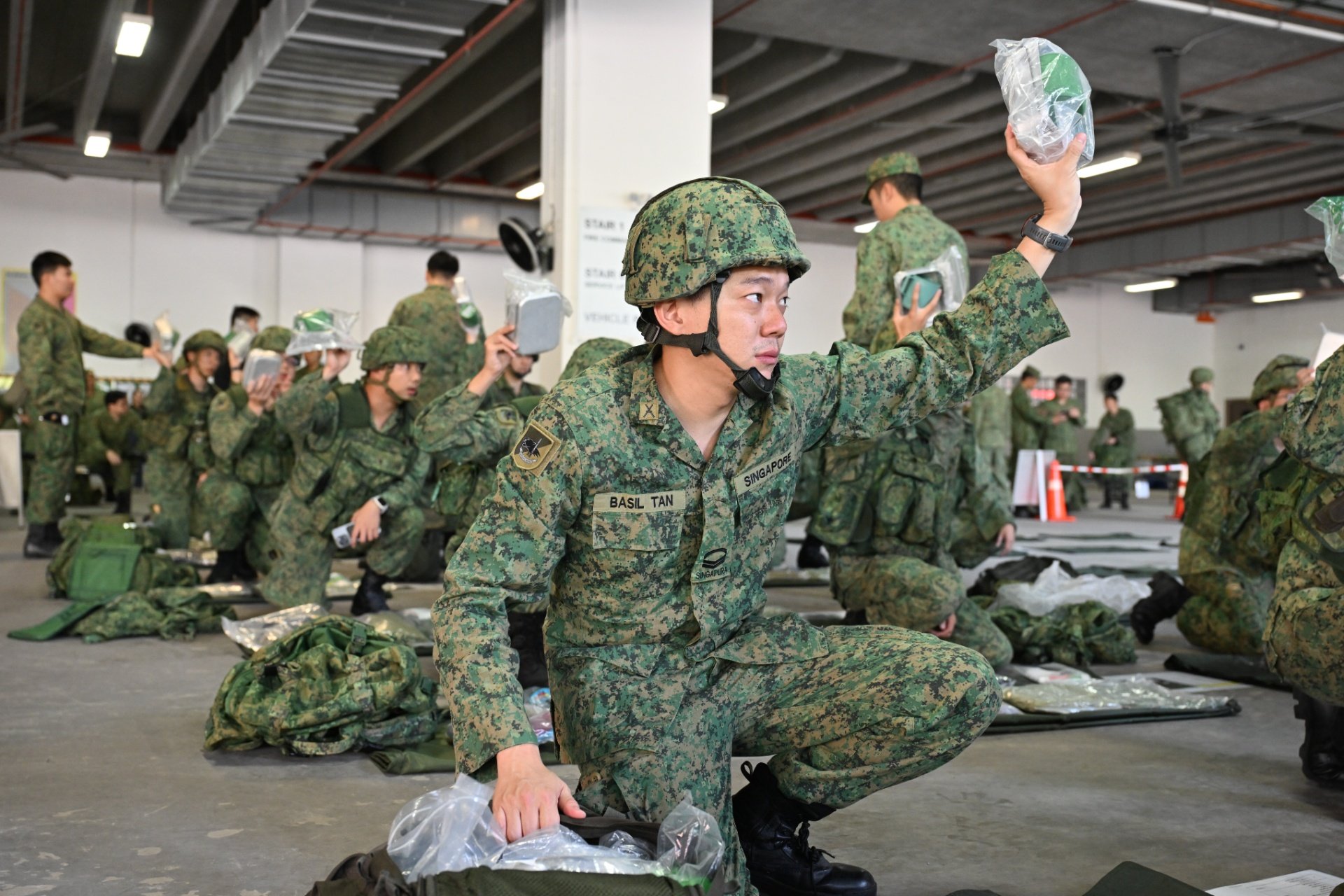
Reaffirming their commitment to defence
07 Feb 2026
Over 3,000 NSmen displayed their commitment to Singapore’s defence at a MOBEX in Selarang Camp.
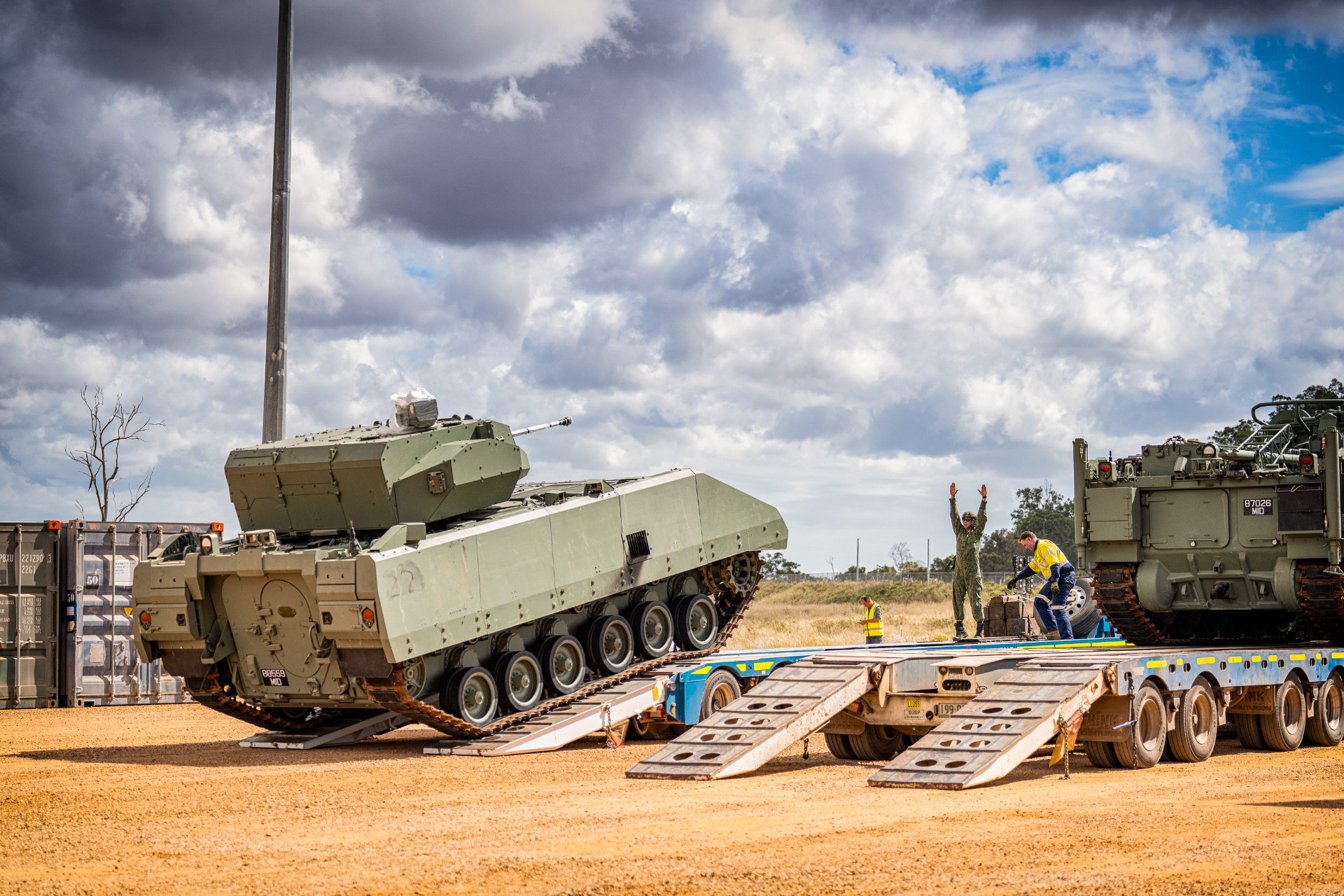
First in, last out at Ex Wallaby 2025
06 Nov 2025
Meet the teams who toil behind the scenes to enable the smooth conduct of the SAF’s biggest unilateral overseas exercise.

